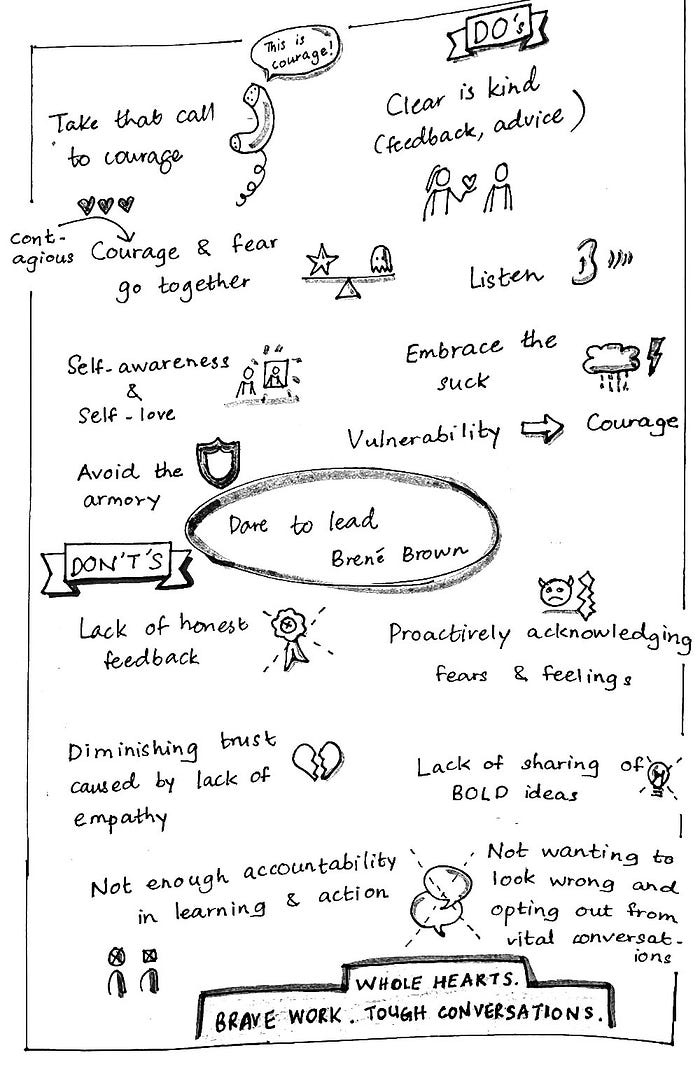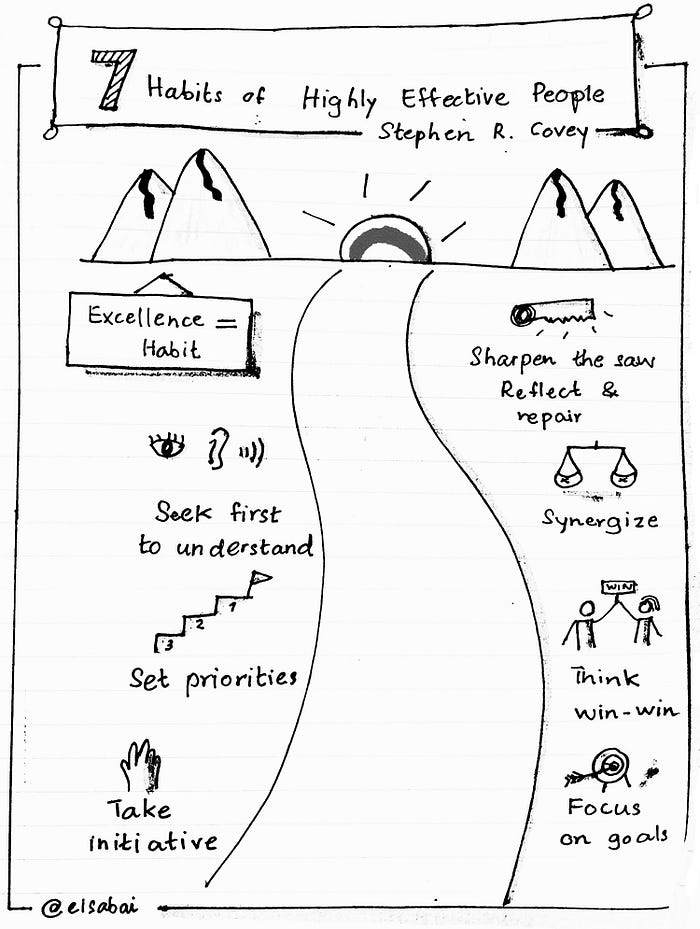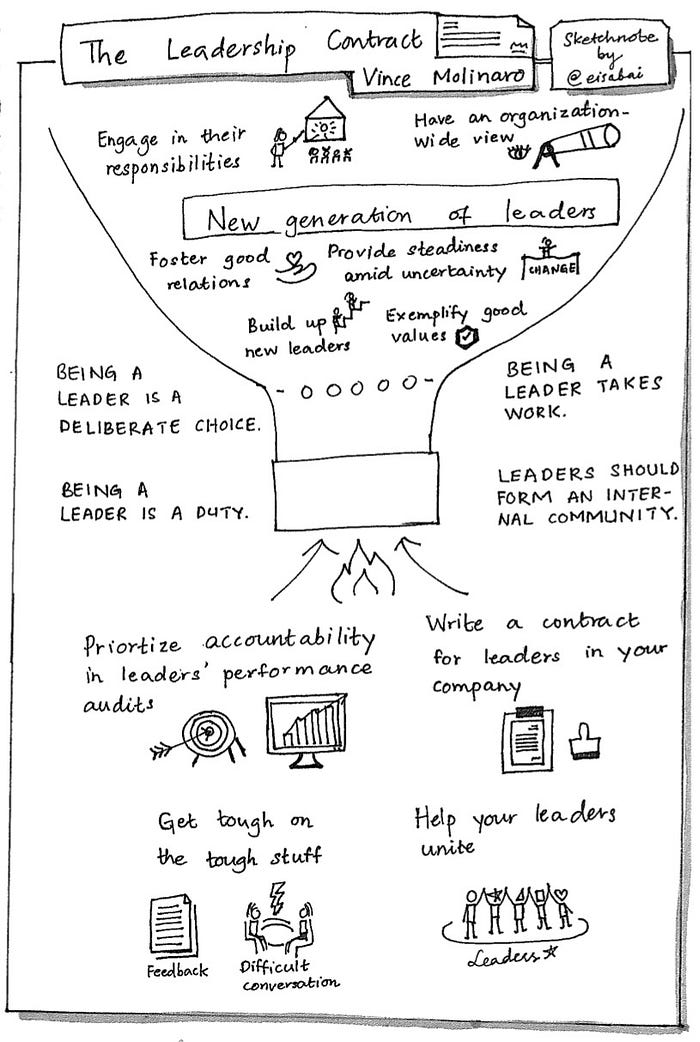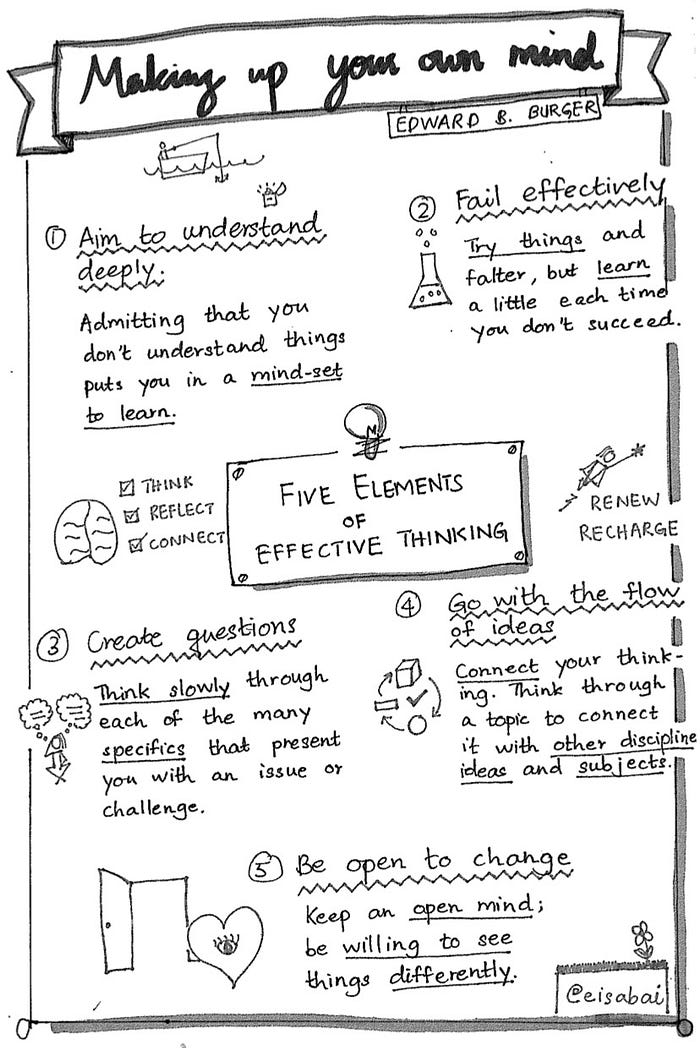1. Dare to Lead — Brene Brown

In her book Dare to Lead, Brene Brown talked about courageous leadership and being kind to your people by providing clear feedback and advice. My main takeaway from this book was that courageous leadership doesn’t mean being directive, appearing to have it all together or having all the answers. It means being vulnerable, showing your true self and being willing to be accountable for your actions, despite fear.
2. Atomic Habits — James Clear

It’s no secret that I like to set goals and follow system and processes. Through Atomic Habit book, James Clear shed light on something I was missing, creating a habit that is impossible to not follow through with your plan. Make it easy, make it obvious, make it attractive and make it satisfying, the author said.
3. 7 Habits of Highly Effective People — Stephen R. Covey

An oldie but a goldie. 7 Habits of Highly Effective People by Stephen R. Covey continues to be a best seller year after year. His advice is timeless, and can be applied by anyone in any situation. What I like most about this book is that the emphasis is always on what you can do and what you can control––it’s never about luck or the other party. You can’t control how others might respond to you, but you can always control and take charge of situation by seeking first to understand, taking initiatives, thinking win-win and so on.
4. The Leadership Contract — Vince Molinaro

I wish I had read this book when I was a young (read: inexperienced) leader. I mistakenly thought if a leader is supportive and well-intentioned, everything else will follow. But those are just the tip of the iceberg. Vince Molinaro illustrated that very clearly in his book, The Leadership Contract. Being a leader takes work. There needs to be accountability, alignment (he calls it “leadership contract”), clear expectation and support system for leaders to fuel their success. This is a great book for leaders at all stages of their leadership journeys, from fresh new leaders to senior leaders responsible for departments, and organisations.
5. Making up your own mind — Edward B. Burger

Problem solving is one of the highest rated skills in the twenty-first century and it’s an essential skill for leaders. In his book, Edward B. Burger used puzzles to foster effective thinking to help solve problems with ease and pose. The author introduced five elements of effective thinking; which he said is slightly different to critical thinking in that it has broader coverage consisting of creativity, originality, engagement and empathy. The five elements are 1)Aim to understand deeply, 2) Fail effectively, 3) Create questions, 4) Go with the flow of ideas and last but certainly not the least, 5) Be open to change.
My books on leadership & management
If you enjoy reading books, you might like to check out my leadership books:
 The Engineering Manager's How-to Guide
The Engineering Manager's How-to Guide
From How To Transition From A Software Engineer To An Engineering Manager to How To Build A Diverse And Inclusive Engineering Organisation and everything in between, this book provides a concise and actionable guide for engineering managers that you won't find in other leadership and management books.
Understanding and adapting the fundamentals of leadership that are critical to surviving the sudden transition to remote working
Are you an overwhelmed manager who is doubting their ability to lead a remote team effectively? Does your day consist of back to back zoom meetings, with no time to think strategically? Then this book is for you.
---
